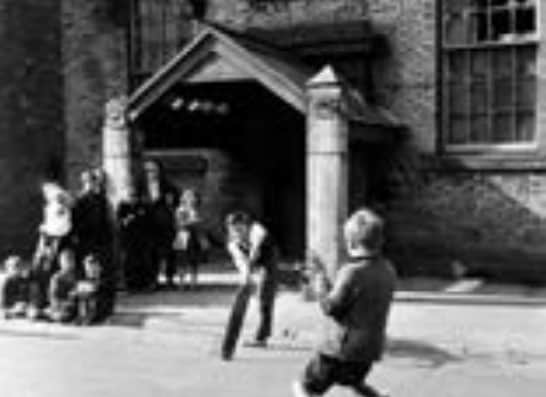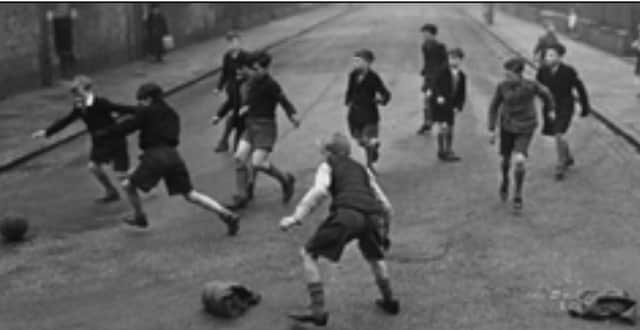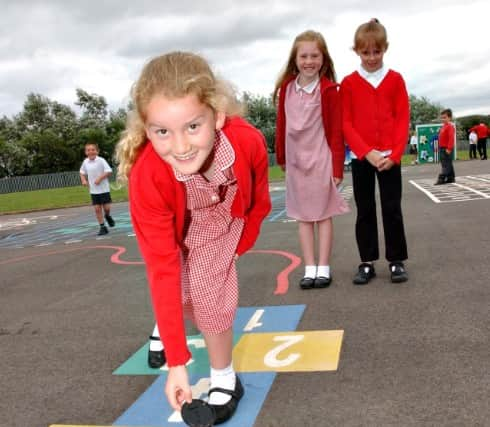Revealed: The rules of street footy and cricket (dustbins and tennis-ys optional)
This article contains affiliate links. We may earn a small commission on items purchased through this article, but that does not affect our editorial judgement.
and live on Freeview channel 276
Here's a topic which will divide opinion.
What were the rules of street footy and cricket when you were kids?
Philip Curtis, of Sunderland Antiquarian Society, shares some of them.
Advertisement
Hide AdAdvertisement
Hide AdThere were no computers, no mobile telephone screens so how on earth did youngsters spend their leisure time all those years ago?
The streets were our playground and we went outside to play in the fresh air until our parents called us in.
More often than not, we just ignored them.
Home-made bats and wickets
Little equipment was required and usually it was homemade or adapted to suit the game anyway.
Cricket was played in the streets or back lanes (not those with cobbles) and very often the bat was cut out of a flat piece of wood.
Advertisement
Hide AdAdvertisement
Hide AdAn old tennis ball (tennis-y) was used with the wicket sometimes being a dustbin, a lamp post or just chalked on a wall.


Rules were made to suit the environment, e.g. if a ball bounced off a wall, the batsman was out only if he was caught with one hand.
Out if you caught it one-handed
The batter was also out if they knocked the ball over a backyard wall – they were also usually the one who had to climb over the wall to retrieve it.
Football was popular in most back lanes or quiet streets, usually with a rubber ball as nobody could afford a case-ball (casey).
Advertisement
Hide AdAdvertisement
Hide Ad

Coats were usually used as goalposts and teams could be made up of any number. Back lane doors were also used as goals if there were a few players.
Games would often carry on until the fading light forced their end.
How about Tiggy or Hopscotch
Once you got bored of those, there were other street games including Hide and Seek (Hidey), Tiggy, Hopscotch, Queenie, Kingy, Mounty Kittee and Charlie Can I Come Over The Water?


It was common to see children playing with marbles and alleys in the street gutters and some of the gardens where holes were dug to play three-holer.
Advertisement
Hide AdAdvertisement
Hide AdRingy was also a popular marbles game with a ring being drawn, marbles placed inside and players trying to knock them out with their own marble (usually their prized one).
Boys would arrive to play with their own precious bags of marbles and of course an iron benker.
Making the most of pebbles
Skipping rope games and Chuckstones (only small pebbles required) were regular games played and there always seemed to be a number of girls practising two-baller against a wall.


Ah the days. Share your own childhood games memories by emailing [email protected]
Advertisement
Hide AdAdvertisement
Hide AdAnd thanks to Philip and the Antiquarian Society for another great article.
Find out more about the society by getting along to its Heritage Centre which is open in Douro Terrace on Wednesdays and Saturdays from 9.30am to 12pm.
You can also visit the Antiquarian Society’s Facebook page or its website which is at http://www.sunderland-antiquarians.org
And to apply to become a member, email [email protected]
Comment Guidelines
National World encourages reader discussion on our stories. User feedback, insights and back-and-forth exchanges add a rich layer of context to reporting. Please review our Community Guidelines before commenting.